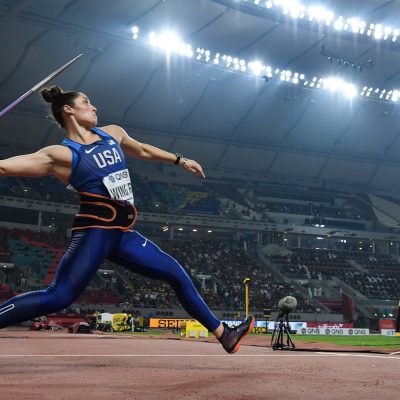Sports have always been more than just games. They are a universal language that transcends borders, cultures, and generations. From ancient Olympic competitions to modern mega-events like the FIFA World Cup, sports have reflected societal values, celebrated human achievement, and fostered unity. Yet, the sports industry is undergoing rapid transformation in the 21st century, shaped by technology, globalization, and shifting fan expectations.
This article explores how sports are evolving today—highlighting their cultural impact, business growth, technological innovations, and the challenges they face in the modern era.
The Cultural Power of Sports
At their core, sports bring people together. They unite fans from diverse backgrounds, provide a sense of identity, and serve as a platform for social and political expression. Whether it is basketball in the United States, cricket in India, or soccer in nearly every corner of the globe, sports are deeply woven into national identities.
Athletes have increasingly taken on roles beyond the playing field. Figures such as Muhammad Ali, Serena Williams, and Lionel Messi have influenced conversations around race, gender, equality, and philanthropy. In the modern era, sports continue to serve as a stage for activism, with athletes using their platforms to advocate for causes ranging from climate change to mental health awareness.
The Business of Sports
Sports are no longer just a pastime—they are a multibillion-dollar global industry. According to recent estimates, the global sports market is worth over $500 billion, encompassing ticket sales, sponsorships, broadcasting rights, and merchandise. Major leagues like the NFL, NBA, English Premier League, and Indian Premier League (IPL) are among the most lucrative entertainment properties worldwide.
Sponsorship and branding have become central to sports economics. Companies recognize the value of aligning with teams and athletes to reach global audiences. The rise of digital media has further amplified this, as brands now connect with fans through social media campaigns, streaming platforms, and esports partnerships.
Emerging markets are also fueling growth. Countries in Asia, Africa, and the Middle East are investing heavily in sports infrastructure and leagues to attract tourism and global attention. Events like the Qatar 2022 FIFA World Cup or Saudi Arabia’s investments in Formula 1 and golf reflect how sports are also tools of diplomacy and national branding.

Technology in Sports
Technology is one of the biggest drivers of change in modern sports. Innovations are revolutionizing how athletes train, how games are played, and how fans consume sports content.
Training and Performance
Wearable devices, AI-driven analytics, and biomechanics tools allow athletes to monitor performance in real time. Data on speed, endurance, and injury risks helps coaches design tailored training programs. Virtual reality (VR) systems even allow athletes to simulate game scenarios and improve decision-making under pressure.
Broadcasting and Fan Experience
From high-definition broadcasts to interactive apps, technology has transformed how fans watch sports. Live streaming makes events accessible worldwide, while augmented reality (AR) enhances broadcasts with live stats, 3D replays, and immersive viewing experiences. The growing popularity of sports documentaries and behind-the-scenes content also shows how storytelling is reshaping fandom.
The Rise of Esports
Perhaps the most surprising evolution in the sports landscape is esports. Competitive gaming has exploded in popularity, with tournaments attracting millions of viewers online and in stadiums. Esports franchises now operate much like traditional sports teams, with sponsorships, leagues, and global fan bases. While some debate whether esports should be considered “real sports,” its cultural and economic impact is undeniable.
Health, Wellness, and Sports Science
Sports are not just entertainment—they are also crucial to promoting health and wellness in society. As sedentary lifestyles and health challenges increase worldwide, sports participation encourages physical activity, discipline, and teamwork.
Sports medicine has advanced dramatically, improving athlete safety and recovery. Sophisticated treatments for injuries, such as ACL tears or concussions, have extended careers that would have ended prematurely in previous decades. Meanwhile, nutrition science has become central to training regimens, with personalized diets enhancing performance.
However, issues like overtraining, doping, and the mental health of athletes remain pressing. Increasingly, athletes are speaking openly about mental health struggles, prompting organizations to prioritize psychological support alongside physical training.
The Social and Political Dimension of Sports
Sports have always mirrored society’s struggles and aspirations. The 1968 Black Power salute at the Olympics, the boycott of apartheid-era South Africa, and the recent debates over gender equality in sports are all examples of how athletics intersect with politics.
Today, gender equity is a prominent issue. Women’s sports are gaining recognition, from the popularity of the FIFA Women’s World Cup to growing support for the WNBA. Yet, disparities in pay, media coverage, and investment remain significant challenges.
Similarly, inclusivity is shaping sports conversations. Debates around transgender athletes, accessibility for disabled athletes, and anti-discrimination policies highlight how sports must evolve to reflect modern values of fairness and equality.
Sports and Globalization
Sports are among the most powerful drivers of globalization. Events like the Olympics and the World Cup showcase not just athletic talent but also cultural exchange. Athletes often become global ambassadors, transcending nationality and reaching fans worldwide.
Globalization has also influenced athlete recruitment. Professional leagues scout talent internationally, bringing diversity to rosters. For example, the NBA now features players from over 40 countries, while European football leagues are home to stars from every continent.
However, globalization also brings challenges. The commercialization of sports risks eroding local traditions, and the concentration of wealth in elite leagues can overshadow grassroots development. Ensuring that globalization benefits all levels of sport remains a key issue.
The Challenges Ahead
Despite its successes, the sports world faces significant challenges:
-
Corruption and Governance: Scandals in organizations like FIFA and the International Olympic Committee have raised questions about transparency and ethics in sports governance.
-
Environmental Sustainability: Mega-events consume vast resources and create carbon footprints, leading to calls for more sustainable practices in stadium construction and event management.
-
Inequality: Wealth disparities between men’s and women’s sports, as well as between elite leagues and grassroots programs, must be addressed to ensure inclusivity.
-
Mental Health and Pressure: The growing scrutiny on athletes through media and social networks has increased stress and mental health concerns.
-
Technological Disruption: While innovations enhance the game, overreliance on technology (such as video replay systems) sometimes sparks debates about the spirit of sport versus the precision of machines.
The Future of Sports
Looking ahead, the future of sports will be defined by integration, inclusivity, and innovation. Digital platforms will continue to expand fan engagement, allowing personalized, interactive viewing experiences. Wearable technologies and sports science will push the boundaries of athletic performance while ensuring safety.
Esports will likely merge further with traditional sports, with hybrid events becoming commonplace. Sustainability will become a non-negotiable standard, as organizations adopt green practices to align with global environmental goals. And importantly, the push for gender equality, mental health awareness, and diversity will continue to reshape sports culture.
In many ways, sports reflect humanity’s best qualities: resilience, teamwork, and the pursuit of excellence. As society evolves, so too will sports, remaining a source of inspiration, unity, and passion for generations to come.

Conclusion
Sports are far more than games—they are a mirror of society, an economic powerhouse, and a catalyst for cultural and technological innovation. From the roar of fans in stadiums to the quiet focus of athletes in training, the world of sports embodies human spirit at its peak.
As we move deeper into the 21st century, the challenges facing sports—equity, sustainability, governance—are as significant as the opportunities. By embracing innovation while staying true to the core values of fairness, passion, and community, sports can continue to thrive and inspire in an ever-changing world.

